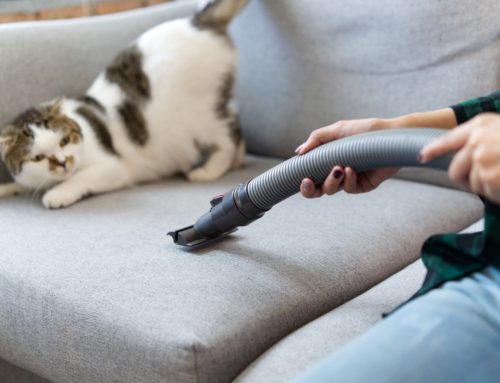As the new strain of coronavirus (i.e., COVID-19) spreads across the world and affects more and more people, you’re likely wondering how it can—or cannot—affect your pet, especially after the report of a dog testing positive in Hong Kong. While we understand that a pet who tests positive for this disease is cause for concern, there is no need to panic. According to multiple international and domestic human and animal health organizations, such as the Centers for Disease Control and Prevention (CDC) and the World Health Organization (WHO), there is no evidence at this point indicating that pets can spread COVID-19 to other animals, or to people. For the full story, read the explanation on the American Veterinary Medical Association’s website.
However, despite the reports that pets do not appear to spread COVID-19 to other animals or people, or become ill themselves, there is still much confusion about this disease. To help answer your questions, here is what we currently know.
What is COVID-19?
COVID-19 is a novel coronavirus, a family of viruses that can cause illness in people or animals, including cats, dogs, birds, pocket pets, and many more. In people, several coronaviruses are linked to respiratory illness, such as the common cold, but COVID-19 has developed into a more severe condition, and in people can cause a fever, dry cough, tiredness, and a sore throat.
Can dogs and cats get the new coronavirus?
Most coronaviruses are species-specific, and rarely jump species. For example, COVID-19 is thought to have originated in bats, but mutated to infect a person, and now spreads only through person-to-person contact. As of now, dogs and cats do not show COVID-19 signs, or serve as an infection source in people, but this situation is rapidly changing, so continue to practice proper hygiene to limit infection transmission.
What’s the difference between COVID-19 and canine and feline coronaviruses?
While cats and dogs do get coronaviruses, they are not the same forms as the new COVID-19, which is specific to people only. In cats, an enteric coronavirus causes mild diarrhea, but, in rare cases, it may lie dormant until it evolves into feline infectious peritonitis, which is almost always fatal. Dogs have two common coronavirus forms—enteric and respiratory. The enteric form is similar to the feline coronavirus, in that it causes mild diarrhea that is usually self-limiting, while the respiratory form is often linked to kennel cough.
What should I do if I get sick, or my pet falls ill?
Although there is no evidence to support transmission between people and pets, or that pets can serve as an infection source for people, there is not enough information to fully rule out the possibility. Because of the lack of available information, animal and human health organizations are promoting overly cautious protocols if you or your pet are ill.
- If you’re ill — Have someone else care for your pet, if possible. At a minimum, avoid kissing, hugging, snuggling, and sharing food with your pet, wash your hands before and after handling your pet, and wear a mask.
- If your pet is ill — Contact us immediately if your pet becomes ill, especially after being exposed to a person with COVID-19.
- If you and your pet are ill — If your pet requires immediate or emergency care, and you are sick, contact Yellowstone County’s public health official to determine the best course of action to transport your pet to our care. Prior to your pet arriving at our hospital, alert us to your health status, so we can take appropriate precautions when handling your pet, to protect ourselves from the possibility of exposure.
How can I protect my pets and my family from COVID-19?
The most effective measures to keep your pets and your family healthy are relatively simple—practice good hygiene, and avoid unnecessary exposure. Follow these tips to stay safe:
- Avoid people who are sick, or who have been exposed to sick people, as they may be carriers.
- Call your doctor if you experience a fever or respiratory issues.
- Avoid touching your face, especially your mouth, nose, and eyes.
- Wash your hands often with soap and water for a minimum of 20 seconds. If soap and water are not available, use a hand sanitizer that contains at least 60% alcohol.
- Keep a distance of 6 to 10 feet away from other people, and avoid large gatherings or public areas, if possible.
- Wash your hands before and after handling your pet.
- Provide your pet with mentally stimulating indoor activities, such as games, training sessions, and food puzzles, in lieu of outdoor exercise.
- Avoid taking your dog to dog parks, or walking in heavily populated areas.
Guidance is available from the CDC to help your household get ready for COVID-19.

What is the best source for accurate information about COVID-19?
The COVID-19 situation is rapidly changing. Avoid turning to social media for your information; instead, keep current with facts and research presented by the following websites:
- World Health Organization (WHO)
- Centers for Disease Control and Prevention (CDC)
- American Veterinary Medical Association (AVMA)
- World Organization for Animal Health (OIE)
As this issue continues to change, our operating protocols may also change. Before heading to our hospital, give us a call to ensure we’re open, if we’re seeing all patients or only sick and injured pets, and to get our current protocols when entering the building.








Leave A Comment